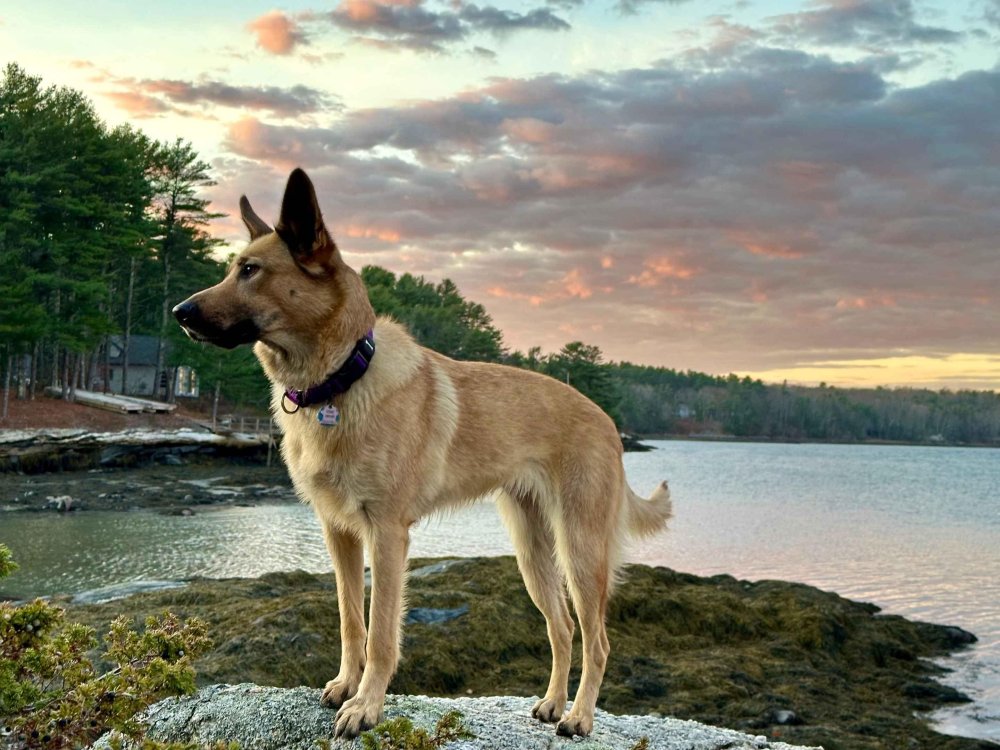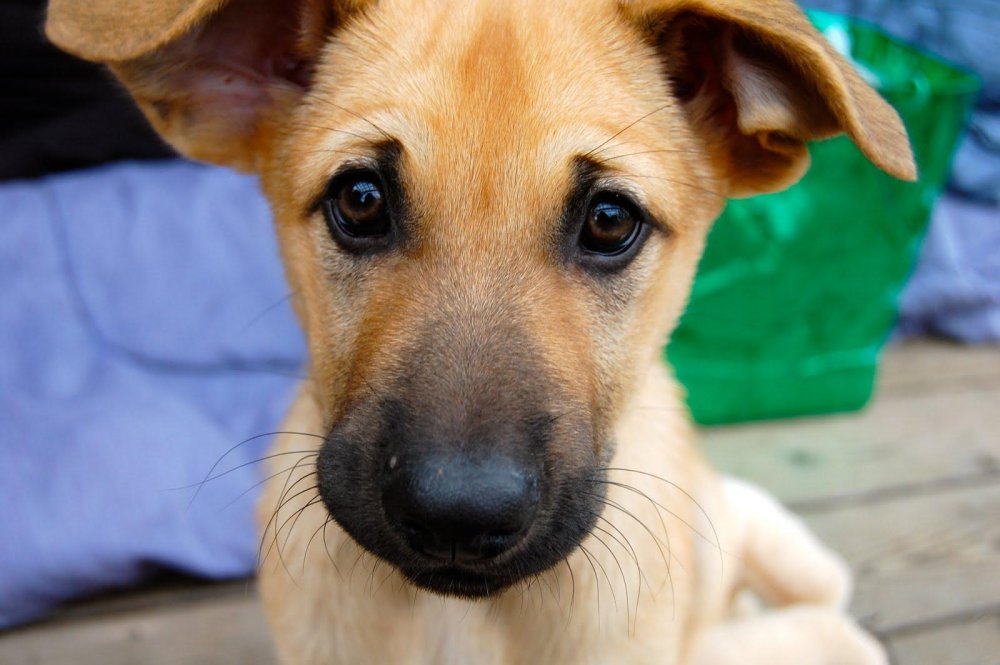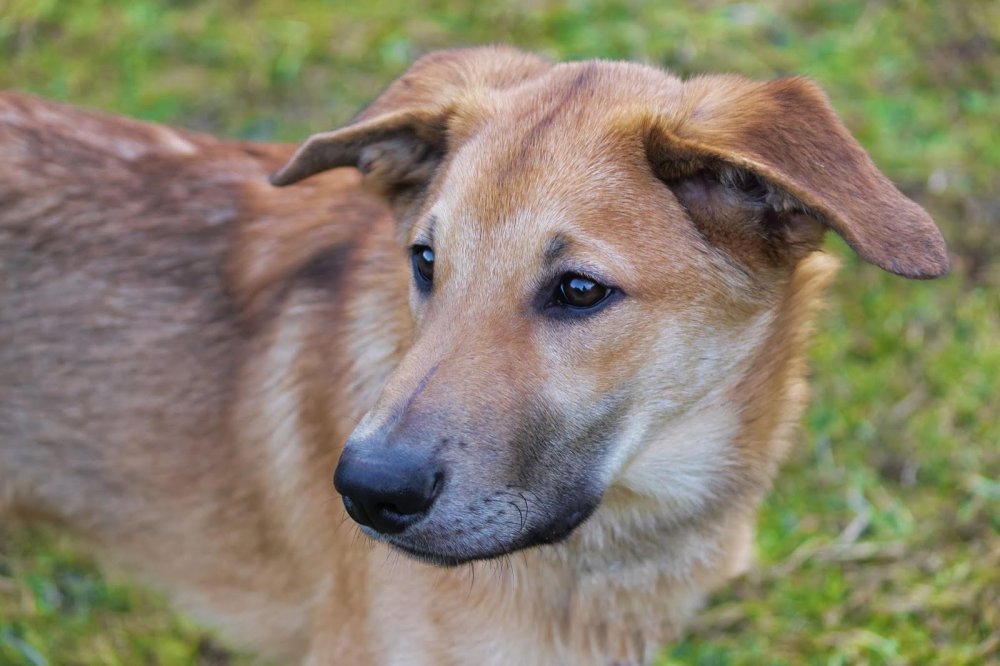- Breed Category: Working Dog
- Country of Origin: United States
- Average Height: Males 58-66 cm, Females 53-61 cm
- Average Weight: Males 29-41 kg, Females 25-34 kg
- Average Life Span: 12-15 years
- Grooming Requirements: Moderate, regular brushing needed
- Exercise Requirements: High, needs daily exercise
- Coat Type: Double coat, dense and soft
- Coat Color Variations: Tawny, with black markings
- Shedding Level: Moderate to high
- Ear Type: Floppy
- Tail Type: Bushy, carried in a sickle shape
- Temperament: Friendly, intelligent, and loyal
- Intelligence Level: High
- Barking Tendency: Low
- Compatibility with Children: Excellent
- Compatibility with Other Pets: Good, with proper socialisation
- Training Ease: Easy, eager to please
- Common Health Issues: Hip dysplasia, epilepsy
- Dietary Needs: High-quality diet, balanced nutrition
- Energy Level: High
- Drooling Tendency: Low
- Sensitivity to Weather: Tolerates cold well, heat sensitive
- Overall Maintenance Level: Moderate
- Original Purpose: Sled dog, draft work
- Year of Recognition by Kennel Clubs: 1991
- Apartment Friendly: Not ideal, needs space
- Best Suited For: Active families, outdoor enthusiasts
- Cost of Ownership: Moderate to high
- Unique Traits: Gentle nature, strong work ethic
Ever wondered what makes the Chinook dog breed so special? This article will take you on a journey through the unique characteristics, rich history, and essential care tips for this remarkable breed. Known for their friendly nature and impressive strength, Chinooks are a rare gem in the canine world. Originally bred for sledding in the snowy landscapes of New Hampshire, these dogs are not just about power; they’re about loyalty and companionship. With their striking appearance and gentle temperament, Chinooks make excellent family pets. Whether you’re considering adding a Chinook to your family or just curious about this breed, you’ll find everything you need to know right here. Dive in and discover what makes the Chinook truly stand out.
History and Origin of the Chinook Dog Breed

Early Development of the Breed
The Chinook dog breed traces its roots back to the early 20th century in New Hampshire, USA. It all began with a single dog named Chinook, born in 1917, who was the offspring of a husky and a mastiff-type dog. This unique mix gave rise to a breed known for its strength and endurance. The breed was developed by Arthur Treadwell Walden, an adventurer and dog driver, who aimed to create the perfect sled dog. Walden’s vision was to combine the best traits of various breeds to produce a dog that was not only powerful but also gentle and friendly.
Role in Sled Dog Racing and Exploration
Chinooks quickly became renowned for their role in sled dog racing and exploration. They were part of Admiral Richard Byrd’s Antarctic expedition in 1929, showcasing their ability to withstand harsh conditions. Their strength and stamina made them ideal for long-distance travel, and they played a crucial role in early 20th-century exploration efforts. These dogs were not just workhorses; they were companions to explorers, sharing in the triumphs and challenges of the journey.
Key Historical Figures
Arthur Treadwell Walden is the key figure behind the Chinook breed’s creation. His dedication to developing a versatile sled dog laid the foundation for the breed’s future. Walden’s work was continued by others who recognised the Chinook’s potential, ensuring the breed’s survival and growth. These pioneers were instrumental in establishing the Chinook as a distinct and valued breed, celebrated for its unique qualities and contributions to exploration.
Physical Characteristics of the Chinook Dog Breed

Appearance
Chinooks are medium to large dogs, typically weighing between 25 to 41 kilograms. They stand about 53 to 66 centimetres tall at the shoulder, giving them a sturdy and balanced look. Their coat is a beautiful tawny colour, ranging from pale honey to a deep reddish-gold, which is quite striking. You might notice some distinctive markings, like a darker mask or ears, adding to their unique charm.
Unique Physical Traits
One of the standout features of the Chinook is their strong, muscular build. This breed was designed for endurance and power, and it shows. Their broad chest and well-developed muscles make them perfect for activities that require strength and stamina. Despite their robust physique, Chinooks have a gentle expression, with almond-shaped eyes that convey warmth and intelligence. Their bushy tail, often carried in a gentle curve, adds to their overall majestic appearance.
Temperament and Behaviour of the Chinook Dog Breed

Typical Personality Traits
Chinooks are known for their loyalty and intelligence, making them a standout choice for families and individuals alike. These dogs are not just smart; they’re eager to please, which makes training a breeze. Their energy level is moderate, so they’re up for a good run or hike but are equally happy to relax at home with their loved ones.
Suitability as a Family Pet and Working Dog
As family pets, Chinooks are hard to beat. Their gentle nature and patience make them excellent companions for children. They’re protective without being aggressive, ensuring a safe environment for the whole family. As working dogs, their history in sledding speaks volumes about their capability and endurance. They thrive in roles that challenge their physical and mental abilities.
Interaction with Children and Other Animals
Chinooks are naturally good with kids, often forming strong bonds with them. Their calm demeanour means they’re unlikely to be overwhelmed by the chaos that sometimes comes with children. When it comes to other animals, Chinooks are generally friendly and sociable, making them a great addition to multi-pet households. Early socialisation helps them get along with other dogs and even cats.
Training and Exercise Needs of the Chinook Dog Breed

Importance of Early Training and Socialisation
Getting a Chinook off to a good start with early training and socialisation is crucial. These dogs are naturally intelligent and eager to learn, so introducing them to various environments, people, and other animals early on helps them grow into well-rounded adults. This foundation not only makes them more adaptable but also strengthens their bond with you.
Recommended Training Techniques
Positive reinforcement is the way to go with Chinooks. They respond well to praise, treats, and play, making training sessions enjoyable for both of you. Consistency is key, so keep commands clear and sessions regular. Chinooks love to please, so turning training into a game can make it even more effective.
Daily Exercise Requirements and Activities They Enjoy
Chinooks have moderate energy levels, needing daily exercise to stay happy and healthy. A good mix of walks, runs, and playtime in the backyard will keep them content. They enjoy activities like hiking and agility training, which challenge both their body and mind. Regular exercise not only keeps them fit but also prevents boredom-related behaviours.
Health and Lifespan of the Chinook Dog Breed
Common Health Issues
Chinooks are generally healthy, but like any breed, they can be prone to certain health issues. Hip dysplasia is a common concern, given their active nature and size. Eye conditions, such as cataracts, can also occur. Regular vet check-ups are essential to catch any potential problems early.
Average Lifespan and Tips for Keeping Them Healthy
Chinooks typically live between 12 to 15 years. To help them reach the upper end of this range, a balanced diet and regular exercise are crucial. Keeping their weight in check reduces the risk of joint issues. Mental stimulation is just as important, so engage them with puzzles and interactive toys.
Preventative Care Recommendations
- Regular vet visits for vaccinations and health screenings.
- Maintain a healthy diet with high-quality dog food.
- Ensure daily exercise to keep them fit and mentally stimulated.
- Brush their coat weekly to keep it healthy and reduce shedding.
- Check their ears regularly for signs of infection and clean them as needed.
Grooming and Maintenance of the Chinook Dog Breed

Coat Care and Grooming Routines
Chinooks have a double coat that requires regular attention to keep it looking its best. A weekly brush is usually enough to remove loose hair and prevent matting. During shedding seasons, you might need to increase this to a few times a week. A slicker brush or an undercoat rake works wonders in managing their coat.
Shedding and Seasonal Grooming Tips
Chinooks shed moderately throughout the year, with heavier shedding in spring and autumn. During these times, a more frequent grooming routine helps manage the extra hair. Bathing should be occasional, as over-bathing can strip the coat of its natural oils. When you do bathe them, use a gentle dog shampoo to maintain their coat’s health and shine.
Regular grooming not only keeps your Chinook looking great but also provides an opportunity to check for any skin issues or parasites. It’s a simple routine that goes a long way in maintaining their overall health and well-being.
Diet and Nutrition for the Chinook Dog Breed
Nutritional Needs for Optimal Health
Chinooks thrive on a balanced diet that supports their active lifestyle. High-quality dog food, rich in protein, is essential to maintain their muscle mass and energy levels. Look for foods with real meat as the first ingredient, and avoid those with excessive fillers or artificial additives. Omega-3 fatty acids are beneficial for their coat and joint health, so consider foods that include fish oil or flaxseed.
Foods to Include and Avoid
Incorporate lean meats, whole grains, and vegetables into their diet for a well-rounded nutritional profile. Avoid foods high in fat and sugar, as these can lead to obesity and related health issues. Steer clear of chocolate, grapes, and onions, as these are toxic to dogs. Always provide fresh water to keep them hydrated.
Feeding Schedules and Portion Recommendations
Establish a consistent feeding schedule to help regulate their digestion and energy levels. Typically, two meals a day—morning and evening—work well for Chinooks. Portion sizes depend on their age, weight, and activity level, so consult your vet for personalised advice. Monitor their weight and adjust portions as needed to maintain a healthy physique.
Fun Facts and Trivia about the Chinook Dog Breed

Interesting Tidbits about the Breed
Did you know that the Chinook is the official state dog of New Hampshire? This honour was bestowed upon them in 2009, recognising their unique heritage and contribution to the state’s history. Chinooks are also known for their distinctive “Chinook smile,” a charming expression that endears them to everyone they meet.
Despite their sledding origins, Chinooks are surprisingly adaptable to various climates and living situations. Whether you’re in the snowy mountains or the sunny coast, these dogs adjust well, provided they get enough exercise and mental stimulation.
Famous Chinook Dogs in Media or History
While Chinooks may not be as famous as some other breeds, they have made their mark in history. One notable Chinook was part of Admiral Richard Byrd’s Antarctic expedition, showcasing their resilience and strength. This breed’s legacy continues to inspire adventurers and dog lovers alike.
In media, Chinooks have appeared in documentaries and books about sledding and exploration, highlighting their role in these thrilling adventures. Their story is a testament to their enduring spirit and versatility.
Final Thoughts

The Chinook is a remarkable blend of strength and gentleness. This breed’s unique history and characteristics make it a standout choice for active families. With their friendly nature and impressive endurance, Chinooks offer both companionship and adventure. Embrace the opportunity to welcome a Chinook into your life, and experience the joy of a loyal, intelligent companion. Consider adopting a Chinook and embark on a rewarding journey together.
